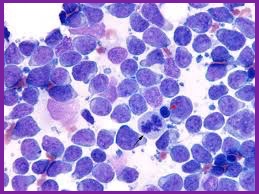Pet Owners
Melbourne Animal Cancer Care has been providing cancer care for pets for over 10 years. Whilst we operate out of Victoria we have both out of state and overseas clients as well. We are very grateful for the opportunity to work with so many beautiful pets and their families.
A treatment plan that fits your whole pets life.
Life does not have to stop when cancer strikes. At macc we strive to provide information and support to empower pet owners to make educated decisions at every point in their pet’s cancer journey.
We use a variety of tests and procedures to learn more about your pet’s cancer. The types of tests recommended will depend on your pets presentation, the type of cancer and your goals for handling your pet’s diagnosis. We want you to participate in the decision-making process for your pet cancer.
One of the best ways to overcome the fear that comes with the cancer diagnosis is to increase your understanding of the disease and treatment options.
macc will provide you with support along the way; including current and honest advice, as well as compassionate care at all times. Consulting with a veterinary oncologist does not mean you are committing yourself to treating your with cancer. macc will listen to your goals and help you make the best decision for your situation. Additionally, if specific treatment is not desired, macc can help keep your pet comfortable and help you prepare for the future.
Cancer is a scary word. It is normal to have feelings of anxiety, worry and grief when dealing with your pet’s cancer. Try to find ways to manage this stress such as exercise, meditation or hobbies. Sometimes you can redirect your thoughts by reading a good book, watching a movie, attending a sporting event or spending time with family and friends. Additionally there are other support options available.
petsandpeople.com.au – Pets and people is a helpful website with caring counsellors.
Beyond blue 1 300 224636
Lifeline 13 11 14
Dori and the team at Nexus Psychology are also very helpful and understand pet loss grief. You can contact them on (03) 9500 0751 or intake@nexuspsychology.com.au
RSPCA, they offer bereavement support and counselling
Suggested readings to help with grief from pet loss; for both adults & children Suggested Readings for Pet Loss
Common pet cancers:
- Lymphoma

- Mast cell tumour
- Mammary tumour
- Bone cancer (osteosarcoma)
- Skin cancer (melanoma, squamous cell carcinoma)
- Oral tumour (mouth)
- Haemangiosarcoma (commonly within the spleen)
Top 10 signs of cancer in pets:
- Abnormal swellings that persist or continue to grow
- Sores that do not heal
- Weight loss
- Loss of appetite
- Bleeding or discharge from any body opening

- Offensive odour
- Difficulty eating or swallowing
- Hesitation to exercise or loss of stamina
- Persistent lameness or stiffness
- Difficulty breathing, urinating, or defaecating
Taken from the American Veterinary Medical Association
Your pet should be seen by a veterinarian if they have any of these signs. This can indicate several illnesses, including cancer. The earlier a diagnosis is made, the better the options may be for treatment. Just like humans, pets should get regular “wellness” examinations to monitor their health. However, if you notice any of these warning signs between check ups schedule an appointment with your veterinarian as soon as possible.
A few cancer facts:
- Cancer is the uncontrolled growth of abnormal cells on or within the body. Not all cancers are the same. Depending on the location and biologic behaviour there may be several treatment options available.
- Cancer is the leading cause of death in pet cats and dogs. Cancer accounts for 50% of pet deaths each year.
- Cancer is often a treatable or even curable disease with specialised cancer care.
- Many of the same treatments that are available for humans are now available for pets. These treatments may include chemotherapy, radiation therapy and surgery.
- Different cancers may require different forms of treatment. Some patients will only need tumour removal where as others may need a combination of treatments.


